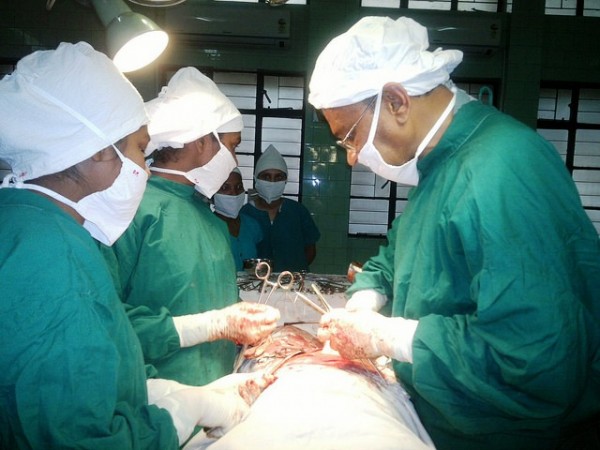‘Morcellation’ Device Used in Removal of Uterus May Spread Cancer Cells in Women; Study

A device used in hysterectomy procedure hikes the risk of spread of cancer to other parts of body, warns a research.
Hysterectomy or surgical removal of uterus generally makes use of morcellator, a cylindrical device with sharp endings and a grasper that can be inserted in to the abdominal cavity to extract solid tissues or tumor. Gynecologists at the Columbia University College of Physicians and Surgeons in New York discovered nearly 27 of every 1,000 women who underwent the procedure had uterine cancer that remained undetected. The usage of the device in hysterectomy elevates the chances of transmitting cancerous cells to other parts of the body.
The study used insurance records of 232,882 women who had minimally invasive hysterectomies between 2006 and 2012. About 36,470 patients had power morcellation and 99 of these women were later diagnosed with uterine cancer. These findings suggest one-in-every 368 women who had hysterectomy had increased probability of suffering from disease progression and complication, reports the New York Times.
In addition, it was observed uterine cancer mostly pre-existed among older patients at the time of surgery. The study also identified six participants below 40 who developed the disease after morcellation compared to 24 of those aged 65 and above.
In April, the U.S. Food and Drug Administration announced its disapproval on morcellation in gynecologic surgeries to oust benign non-cancerous tumors and uterine leiomyosarcoma, an aggressive form of cancer that occurs in women over 40's, reports the Washington Post.
The agency urges doctors to consider other medical options apart from morcellation to minimize rate of mortality and cancer formation.
According to the data by the Centers for Disease Control and Prevention, annually 500,000 hysterectomies are conducted in the U.S. for conditions like endometrial cancer and fibroids. The current results alert doctors and older women to look at other choices before going under the knife.
"I think the important take-home is, the older the patient who is undergoing a procedure like power morcellation, the greater the potential for finding unsuspected malignancies. Consequently, that should be a tremendous factor in physicians deciding whether it is appropriate to use that particular technique," said Michael Strongin, chief of gynecologic surgery at Lenox Hill Hospital in New York City, who was involved in the study, reports the Health Day.
More information is available online in the Journal of the American Medical Association (JAMA).
Jul 23, 2014 04:51 AM EDT




